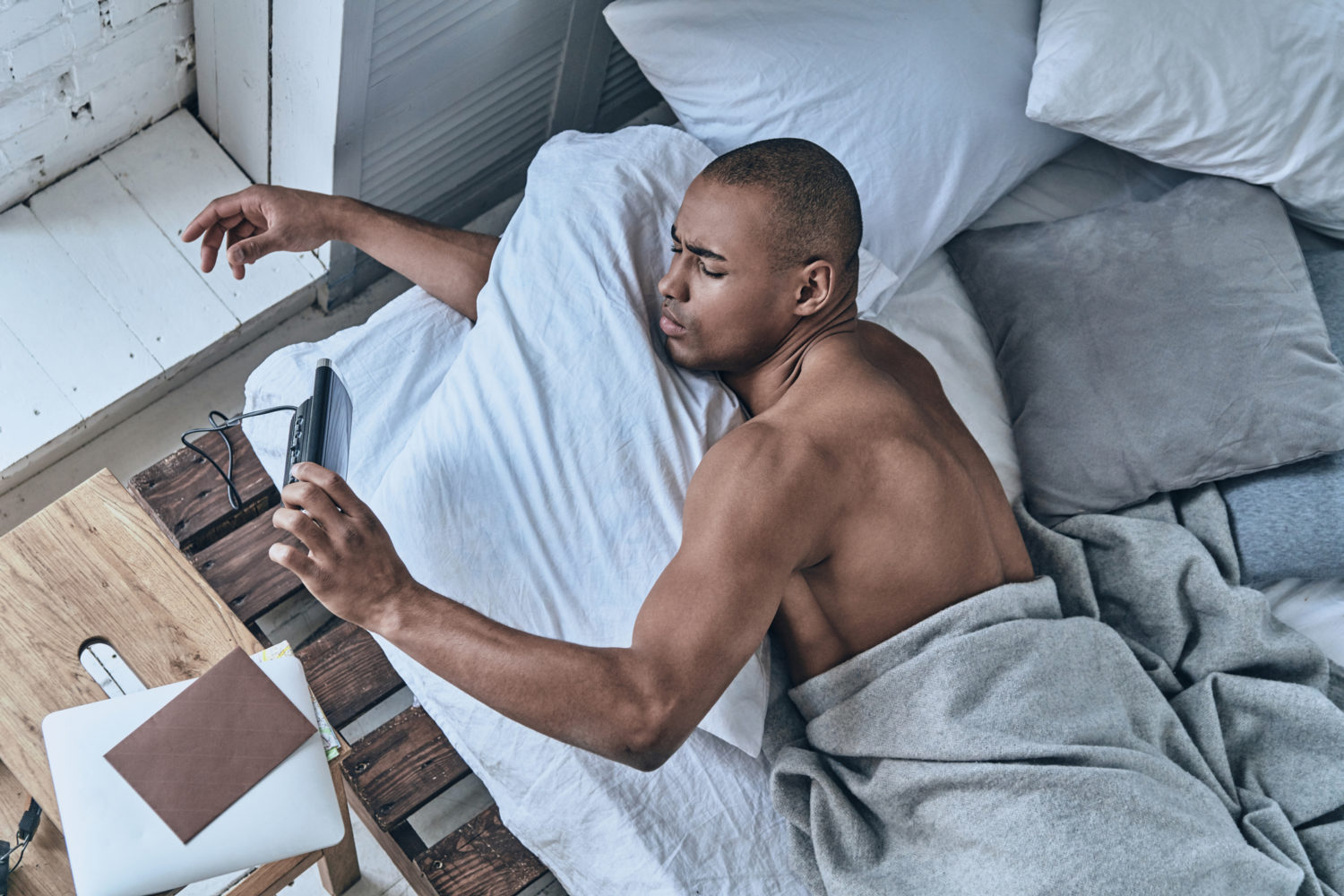Sleep is a critical factor in peak performance, recovery, growth, and just about any other benefit you could imagine as an athlete. We all know how much better we feel and perform when we get a great night’s sleep, but for most of us, consistently getting a good night’s sleep continues to evade us. There are most likely many factors affecting your ability to sleep well, but in this article, I’ll describe some of the biggest factors that influence your ability to get good quality sleep, why they’re important, and what steps you can take to optimize this absolutely critical area of your life.
Your circadian rhythm is what regulates when your body gets tired and falls asleep as well as what makes you wake up in the morning. Your circadian rhythm is responsible for the regulation of key hormones that influence sleep i.e. melatonin and cortisol. As you’ve probably heard by now, melatonin is the hormone your body produces at night to help you fall asleep. On the flip side, your adrenal glands produce a surge of cortisol in the morning to wake you up. If these hormones are off, you’ll likely have a hard time falling asleep at night, or you may feel groggy in the morning when you want to wake up.
The number one thing I see in athletes and in just about every other client of mine is the use of their cell phone, computer, tablet, or tv in the hours before they want to fall asleep. Technology is fantastic and allows for us to do all kinds of amazing things, however this technology also emits a blue spectrum of light into our eyes. The problem with this is that blue light suppresses melatonin, effectively blocking the hormone we need to get a good night’s rest. Our genetics aren’t used to this new thing called electricity, they’re used to a good ol camp fire or a sunset. Both a setting sun and a fire emit more of a red spectrum of light which doesn’t interfere with melatonin production.
So the simplest thing to do is to stop using technology at least 1-2 hours before bed. However, most people just aren’t willing to do that. The 2nd best thing is to get a pair of blue light blocking glasses. Not the sexiest accessory, but nonetheless effective. Alternatively, there is a program called f.lux that can be downloaded on your computer for free that will help reduce the amount of blue light your screen emits. Also, phones now have night shift that you can activate, but this won’t completely block the blue light. It’s better than nothing, but if I were you, I’d just get a pair of 100% blue blocking glasses on amazon for about 20 bucks and put them on 2 hours before bed each night.
Another thing that you can do to optimize your circadian rhythm is to go to bed around the same time and wake up around the same time each night. Obviously this can be next to impossible, especially with away games or crossing over time zones, but do the best you can as this also has a large impact on the quality of your sleep.
The last thing is meal timing. When you eat around the same times throughout the day, your body gets used to this and your circadian rhythm becomes more balanced. Additionally, the timing of your last meal of the day can also play a role. I’d suggest eating your last meal at least 2 to 3 hours before you go to bed. If you’re eating large meals right before bed, your body has to break down all that food while you’re sleeping and focus its energy there, instead of on growth and repair. Another thing your body does during the night, granted you haven’t just had a large meal, is called autophagy. Essentially what this means is that the old cells in your body get recycled and cleaned up, which has a slew of benefits and is excellent for your overall health.
Don’t take my word for this stuff though, I want you to start applying this and see for yourself if it works for you. With that being said, sleep can be hard to measure. A free solution to this is the sleep cycle app. This app will help track your sleep and the quality of it, that way you’ll begin to see how what you do the day before affects your sleep. It’s a great start. If you want to go above and beyond and shell out a few hundred bucks, I’d highly recommend the oura ring. This ring is a beast, and will track REM sleep, deep sleep, body temperature, HRV (heart rate variability), and much much more. You spend about ⅓ of your life asleep. Trust me, it’s worth it to put in the work to optimize this area of your life.
If you want more information, here are a few of my favorite resources on sleep:
-
Why We Sleep by Mathew Walker
-
Sleep by Nick Littlehales

